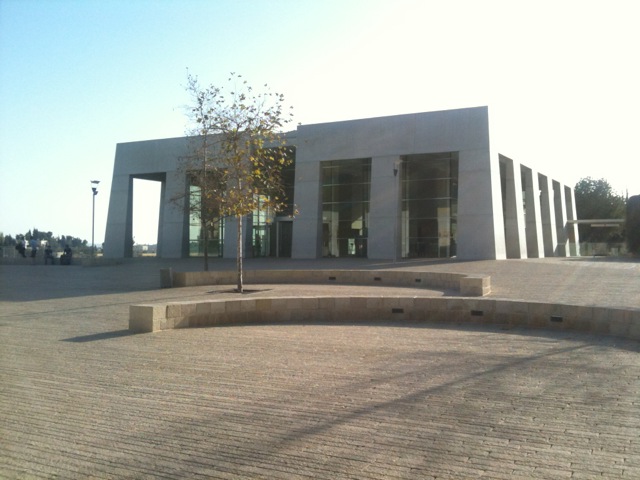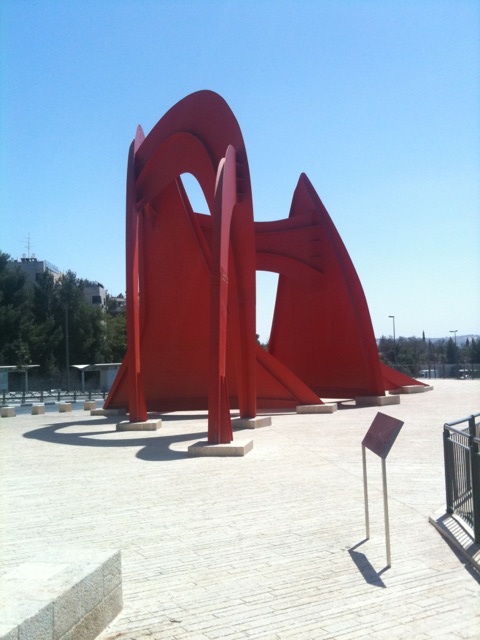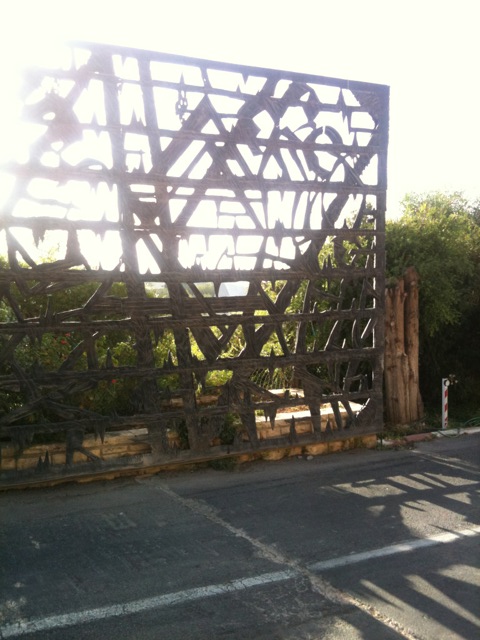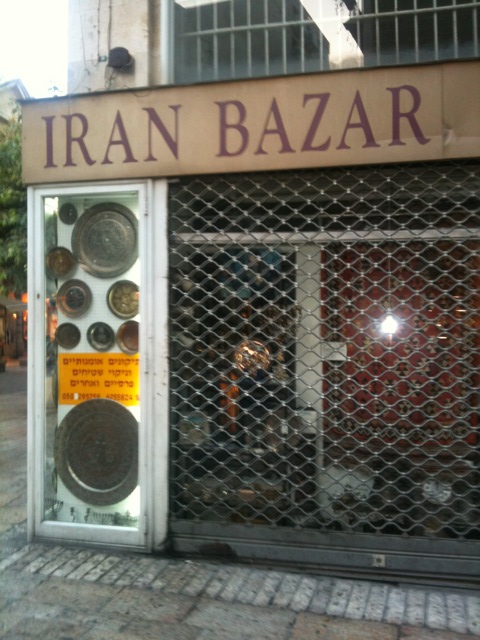I spent Monday visiting the Holocaust Museum in Jerusalem. As one might expect given it's location it is by far the biggest, best, and most interesting museum about the holocaust. It really does take a whole day to see properly.
On my way to the museum, an Arab taxi driver asked me where I wanted to go. When I told him I wanted to go to the Holocaust Museum, he declared that it was all lies and it hadn't happened and refused to take me there. I walked.
I assume everyone reading this post knows the basic story of the holocaust, but it is interesting to get it from the israeli point of view. It was interesting to see not just what was said, but also the general themes and what was implied. In some cases this differs from the way things are spun in the West.
In the West, the Holocaust is often spun as being largely instigated by the Germans. The museum showed convincingly that much of Europe shares culpability. In most countries the local population needed little German support or encouragement to kill Jews. In many cases they started before a German order was given or went beyond what was ordered. European support for the Holocaust was widespread. Many Christian priests were in support and the Pope refused to criticise the extermination of Jews, even after the full extent became public. Even the partisan fighters in Eastern Europe had little support for Jews, refusing to allow them into their camps unless they had weapons (which few did).
In Britain and America, we like to paint ourselves as the heros who sacrificed the lives of our own people in order to save the Jewish people. The museum takes the opinion that the allies had little interest in saving the Jews. They were fighting for reasons of pure self interest and it was largely coincidence that they ended up helping the Jews. The UK knew about the Holocaust early on but suppressed the information and some in the government were privately in favour. When a Jewish supporter conveyed news of polish exterminations to Anthony Eden, he is reported to have said "the news has already reached us. The matter will take it's proper course". When Churchill was asked to divert some resources to disrupting the extermination of the Jewish people, he said "no side issues should interfere" with the winning of the war. Of all countries conquered by the Nazis, the only countries that resisted the holocaust were Norway (which smuggled it's tiny Jewish community to Sweden under the orders of their king) and Bulgaria.
Another major theme is the efforts by Jews to flee to safe places and the resulting creation of Israel. Jews were fleeing for their lives, not for religious reasons and were happy to go anywhere. The UK and US closed their borders. At one point the US sent back a refugee ship and it us believed nearly everyone on board was killed. A few were able to make it to South America or china, but these were hard places to reach. Many people fled from country to country as the German army conquered each country in turn. Israel became the final destination for many refugees due to a relatively easy route from Europe via the Mediterranean, the Balfour Declaration declaring it to be a Jewish homeland, and the fact that it was one of the few places in the region to not be conquered by the Nazis.
After the war, a few Jews tried to return home to Europe, but most found their homes were gone, their communities were gone, and they were not welcome back. The holocaust didn't stop because the people of Europe had a change of heart and realised they had been bad. It stopped because it had achieved it's aims and there was no longer a favourable government to provide cover.
More generally, there were several key underlying themes in the way things were presented in the Holocaust Museum: No other country cares about the survival of the Jews. They will help them only if it suits them. The "international community" either wants to exterminate the Jews, or, at best, doesn't care. If the Jews are to survive then they must fight for themselves.
Several exhibits honored extermination camp uprisings and the actions of the Irgun in trying to secure a safe route to other countries. Europe still hates the Jews, even if things are more subtle now. One exhibit showed an anti-Semitic statue that still stands in a French church.
In Europe, the Holocaust is something that happened long ago in the past and is something we should put behind us - it is part of a previous period of history that has finished. In Israel, the holocaust only just happened; the older generation were there, and were shaped by it; the Jews are still struggling to make a place where they can live safely; people are still trying to exterminate the Jews, even if the Europeans have now largely passed the baton to the Arabs and limit their attacks on Israel to political pressure or economic sanctions. The Holocaust may be over for Europe, but it isn't yet over for Israel.




